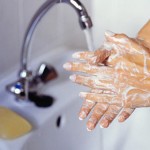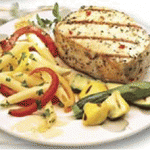Food handling is essential to healthy living. If your food is not handled carefully, you and your family can get dangerous ill. Food borne illnesses can lead to nausea, diarrhea, headache, nerve damage, and more. To ensure that you and your family stay safe, follow these rules when ever preparing or storing food.
1. Choose foods processed for safety: It is important to consume foods that follow safety guidelines. This means drinking pasteurized milk. You may think that buying milk straight from the farm is best, but it is crucial that milk be heated to a temperature that will kill all bacteria. To protect yourself, always buy milk from the grocery store or another vendor that pasteurizes their milk.
2. Cook food thoroughly: Foods need to be cooked to an internal temperature high enough to kill the bacteria. Chicken should be cooked to 180°F and pork, beef, and fish to 160°F. Use a food thermometer to ensure that your meat has reached the appropriate internal temperature.
3. Eat food immediately: After food has reached the appropriate temperature to kill the bacteria, it must be eaten before the temperature cools and bacteria have the opportunity to re-grow.
4. Store food carefully: When storing food, it must be kept at temperatures below 40°F to halt bacteria growth.
5. Reheat cooked foods thoroughly: Even when just reheating food, make sure that it again reaches an internal temperature of above 160°F to kill any bacteria that may have grown.
6. Avoid contact between raw and cooked foods: Cross contamination is the most common way that food borne illness spreads. Never mix cutting board s, plates, knives, or counter space of raw and cooked foods.
s, plates, knives, or counter space of raw and cooked foods.
7. Wash hands repeatedly: Always have clean hands when you handle food. To wash hands properly, wet hands and lather with soap. Then, rinse for 15-20 seconds and dab with clean towel until dry.
8. Keep all kitchen surfaces meticulously clean: Clean counters will decrease the opportunity for cross contamination.
9. Protect foods from insects, rodents, and other animals: These critters are full of bacteria; never let a pet on a surface where food will be prepared.
10. Use pure water: Clean water is the life-line of all living organisms. You can make sure that the water you are using does not have any dangerous impurities by purchasing an at home water test kit.
Research Assistance by Kaylee O’Connell







